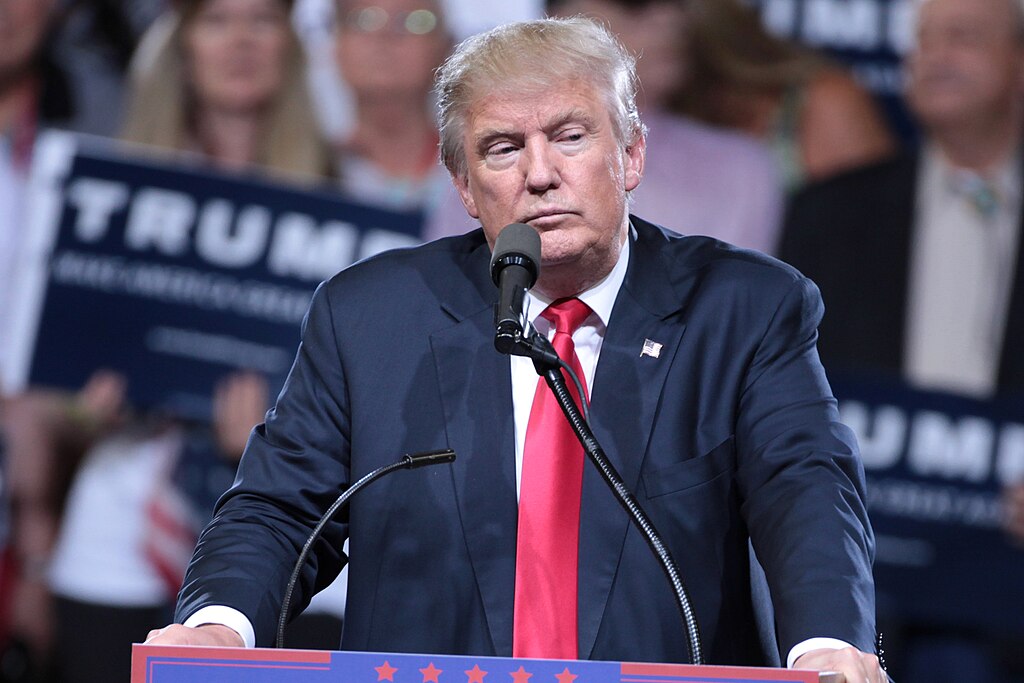President Donald Trump has reignited global trade tensions by imposing a 25% tariff on imported cars and light trucks starting April 3, targeting vehicles not manufactured in the U.S. The move, rooted in a 2019 national security probe under Section 232 of the Trade Act, aims to boost American manufacturing and reduce the trade deficit. Trump’s tariff plan coincides with his promise to unveil reciprocal duties on major trade partners.
Industry experts warn the tariff will increase vehicle prices, reduce U.S. auto sales, and disrupt supply chains. The Center for Automotive Research estimates consumers may face higher car prices by thousands of dollars, while U.S. automakers could lose jobs due to reliance on foreign-made parts.
The directive includes temporary exemptions for USMCA-compliant parts and all other auto components until May 3, as the administration finalizes enforcement mechanisms. Still, the sweeping tariff affects around 4 million vehicles from Mexico and Canada, and raises concerns about compliance with international trade agreements.
Global leaders condemned the move. European Commission President Ursula von der Leyen called it harmful to consumers, and Canadian Prime Minister Mark Carney labeled it a “direct attack” on workers. Meanwhile, the United Auto Workers praised the tariffs as a win for American labor.
Markets reacted swiftly. U.S. auto stocks fell, and the S&P 500 dropped 1.1%, marking its worst month in nearly a year. Trump hinted that upcoming April 2 reciprocal tariffs would be “lenient,” but many remain wary of escalating trade wars.
In 2024, the U.S. imported $474 billion in automotive products, with key partners including Mexico, Japan, South Korea, Canada, and Germany. Analysts warn the new policy could disrupt the global auto market and significantly impact U.S. GDP.



 Jack Lang Resigns as Head of Arab World Institute Amid Epstein Controversy
Jack Lang Resigns as Head of Arab World Institute Amid Epstein Controversy  Trump Says “Very Good Talks” Underway on Russia-Ukraine War as Peace Efforts Continue
Trump Says “Very Good Talks” Underway on Russia-Ukraine War as Peace Efforts Continue  Gold Prices Slide Below $5,000 as Strong Dollar and Central Bank Outlook Weigh on Metals
Gold Prices Slide Below $5,000 as Strong Dollar and Central Bank Outlook Weigh on Metals  U.S. Announces Additional $6 Million in Humanitarian Aid to Cuba Amid Oil Sanctions and Fuel Shortages
U.S. Announces Additional $6 Million in Humanitarian Aid to Cuba Amid Oil Sanctions and Fuel Shortages  Silver Prices Plunge in Asian Trade as Dollar Strength Triggers Fresh Precious Metals Sell-Off
Silver Prices Plunge in Asian Trade as Dollar Strength Triggers Fresh Precious Metals Sell-Off  South Africa Eyes ECB Repo Lines as Inflation Eases and Rate Cuts Loom
South Africa Eyes ECB Repo Lines as Inflation Eases and Rate Cuts Loom  South Korea’s Weak Won Struggles as Retail Investors Pour Money Into U.S. Stocks
South Korea’s Weak Won Struggles as Retail Investors Pour Money Into U.S. Stocks  Thailand Inflation Remains Negative for 10th Straight Month in January
Thailand Inflation Remains Negative for 10th Straight Month in January  US Pushes Ukraine-Russia Peace Talks Before Summer Amid Escalating Attacks
US Pushes Ukraine-Russia Peace Talks Before Summer Amid Escalating Attacks  Gold and Silver Prices Slide as Dollar Strength and Easing Tensions Weigh on Metals
Gold and Silver Prices Slide as Dollar Strength and Easing Tensions Weigh on Metals  Pentagon Ends Military Education Programs With Harvard University
Pentagon Ends Military Education Programs With Harvard University  Missouri Judge Dismisses Lawsuit Challenging Starbucks’ Diversity and Inclusion Policies
Missouri Judge Dismisses Lawsuit Challenging Starbucks’ Diversity and Inclusion Policies  South Korea Assures U.S. on Trade Deal Commitments Amid Tariff Concerns
South Korea Assures U.S. on Trade Deal Commitments Amid Tariff Concerns  Japan Economy Poised for Q4 2025 Growth as Investment and Consumption Hold Firm
Japan Economy Poised for Q4 2025 Growth as Investment and Consumption Hold Firm  Dollar Steadies Ahead of ECB and BoE Decisions as Markets Turn Risk-Off
Dollar Steadies Ahead of ECB and BoE Decisions as Markets Turn Risk-Off  U.S.-India Trade Framework Signals Major Shift in Tariffs, Energy, and Supply Chains
U.S.-India Trade Framework Signals Major Shift in Tariffs, Energy, and Supply Chains  Global Markets Slide as AI, Crypto, and Precious Metals Face Heightened Volatility
Global Markets Slide as AI, Crypto, and Precious Metals Face Heightened Volatility 































